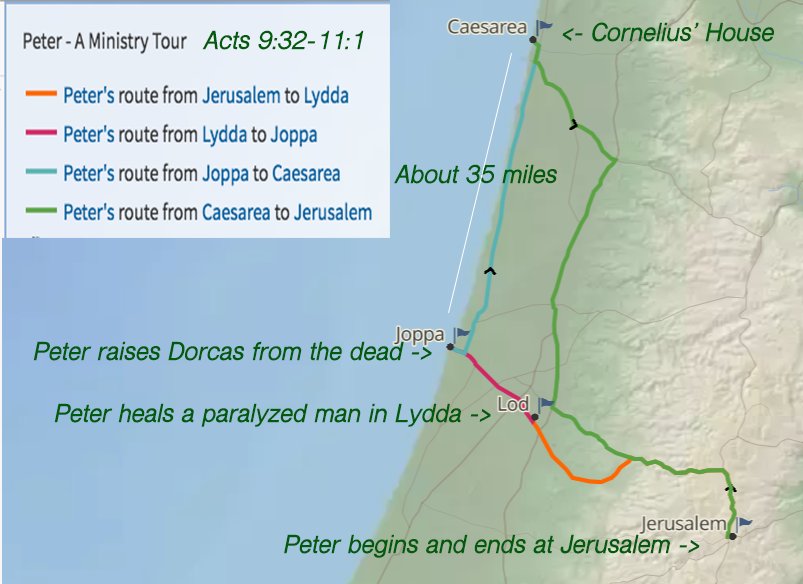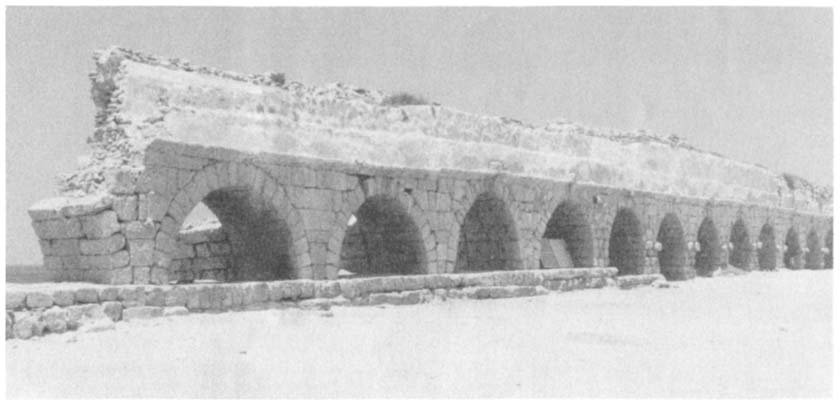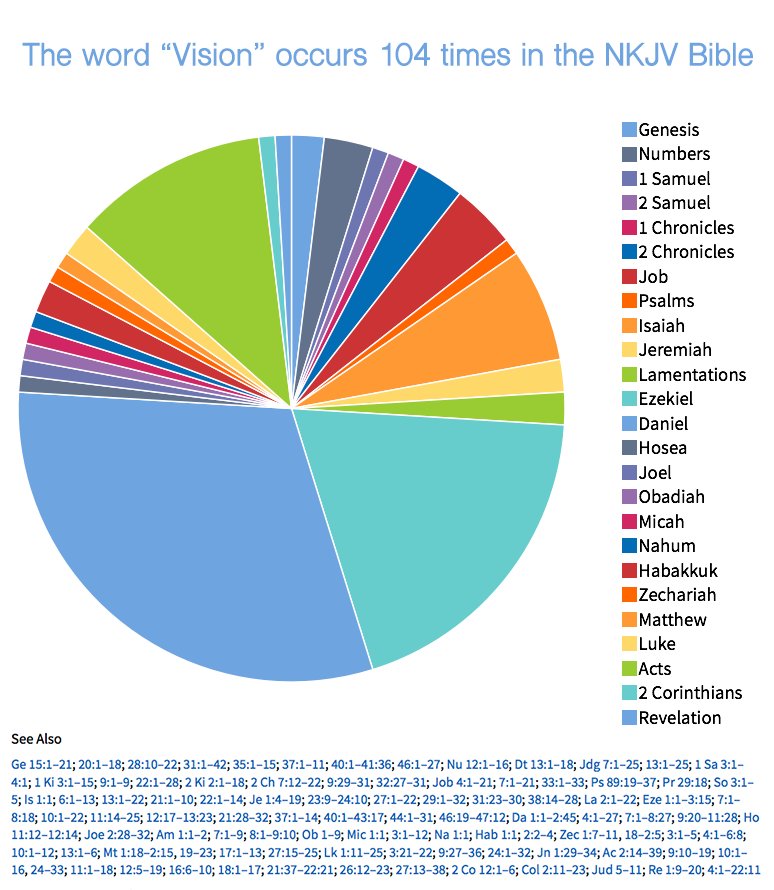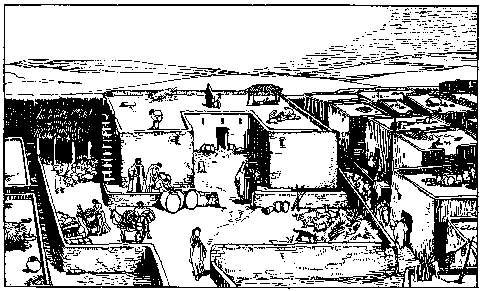Blog Post
Posted by Dion Todd May 27th, 2018 6,282 Views 0 Comments
Today we are going to study Acts chapter 10 in depth. You can follow along in your own Bible if you like. I will be reading from the World English Bible because it is the only modern English translation that is copyright free, and I can read the entire Bible on video without any legal drama or breaking anyone’s rules. After you finish this study, please take the accompanying quiz to test your knowledge and just to clarify, it is ok to use your Bible and lookup the answer if you need to. Thanks to everyone that has participated so far. Let’s get started:
First let’s set our location and do a brief catchup. In Acts chapter 9, we covered how “Saul the Terrible” met Jesus on the road to Damascus and was saved, then he went on to become the Apostle Paul. Near the end of the chapter, Paul returned to his hometown of Tarsus and Luke’s focus switched back to Peter.

Acts Chapter 10 beginning in verse 1, reading from the World English Bible: Now there was a certain man in Caesarea, Cornelius by name, a centurion of what was called the Italian Regiment, 2 a devout man, and one who feared God with all his house, who gave gifts for the needy generously to the people, and always prayed to God.
Caesarea was a large city and seaport on the shores of the Mediterranean. It was built by Herod the Great from 22 to 10 BC, named after Augustus Caesar, and it covered about 8,000 acres. Caesarea was also the headquarters of the Roman governor of the province. Archaeologists have discovered a stone from a building in Caesarea inscribed with the name Pontus Pilate, the Roman governor who condemned Jesus, and visited Jerusalem from time to time.

Caesarea was the home of Philip the Evangelist, and the Apostle Peter visited him there in Acts 21:8. The Apostle Paul spent more than two years in prison in Caesarea (Acts 24:27–25:1) and embarked from there on his journey to Rome (Acts 27). In AD 70, the Roman general Titus returned to Caesarea after conquering Jerusalem. The city of Caesarea was destroyed by the muslims around the end of the 13th century and never rebuilt.
The man named Cornelius was a Roman soldier, a gentile, and an interesting man. He was a Centurion, which means that he commanded from 300 to 600 men. The Romans had many gods they worshiped, including Jupiter, Augustus, Mars, Venus, and others. Cornelius had learned that these were not real, and could do nothing for him. While he was stationed in Palestine, Cornelius had learned the concepts of Judaism and had become a devout follower. The text says that he was a God-fearing man, that he gave gifts to the needy, and that he prayed to God regularly.
Cornelius was in the category of what the Jews called God-fearers (one who feared God). These were Gentiles who loved the God of Israel; they were sympathetic to and supportive of the Jewish faith. Yet they stopped short of becoming full Jews in lifestyle and in circumcision. Jewish people of that time respected and appreciated these God-fearing Gentiles, but they could not really share their life and homes and food with them, because they were still in fact Gentiles and not full Jewish converts.
Was he a sinner? Yes. Outside the covenant? Certainly. A swine? No. He was a noble and spiritual-minded Roman army officer who was longing to know the true God - “he and all his family.” Cornelius would have been disliked by most Jews, simply because he was a Roman soldier. But because of the longing in this centurion’s heart, God met Cornelius in a vision.
3 At about the ninth hour of the day, he clearly saw in a vision an angel of God coming to him, and saying to him, “Cornelius!”
The ninth hour of the day would have been about 3 PM in the afternoon and it was a customary time of prayer for the Jews. Cornelius later tells Peter in verse 30 that he was praying when the vision happened. Cornelius was not dreaming, nor was it actually happening; he saw a vision in his mind’s eye. A vision is like a dream, but you are awake and alert while it is happening.
The Lord often uses visions to speak to His people. In Acts chapter 9, He spoke to Saul and Ananias both in detailed visions.

I once had an open vision of this kind. I was completely awake sitting here in my prayer room, and suddenly a movie screen appeared before me, and I watched a scene being played out on it. In the vision, I saw myself entering into a boxing ring and lacing up the gloves, and the Lord said “I have prepared you for this day. Now get in there and fight!”. By the end of the week, I was a Pastor. The vision marked the end of our computer business, and the beginning of our ministry. It was a new era in our life, and it was completely unexpected. As Clark Griswold once said, “If I woke up tomorrow with my head sewn to the carpet, I wouldn't be more surprised than I am now.” That is how I felt, and I suppose the Lord wanted to assure me that it was from Him.
4 He, fastening his eyes on him, and being frightened, said, “What is it, Lord?” He said to him, “Your prayers and your gifts to the needy have gone up for a memorial before God.
In Acts 10:30, Cornelius explains to Peter that he was praying and suddenly a Man stood before him in bright clothing and called him by name. Cornelius was afraid with a Holy reverence, for He was a God-fearing man. The angel said that his prayers and gifts to the needy had come up for a memorial before God. This statement tells us hat our prayers and our gifts are remembered by God, and there will come a time when He will act on them. They are not unseen.
5 Now send men to Joppa, and get Simon, who is also called Peter. 6 He is staying with a tanner named Simon, whose house is by the seaside.
Cornelius was a soldier and used to following orders. He did not question the angel, but simply obeyed. In Matthew 8:8, Jesus was impressed with the Centurion’s faith when he said: “For I also am a man under authority, having soldiers under me. And I say to this one, ‘Go,’ and he goes; and to another, ‘Come,’ and he comes; and to my servant, ‘Do this,’ and he does it.” Cornelius was a man under authority, with men serving him, so he called three of them.
Again, as with Ananias, this was an amazingly detailed vision. Cornelius was told to send men to the city of Joppa, to the house of Simon the tanner, who lives by the sea, and to ask for Simon who is also called Peter.
7 When the angel who spoke to him had departed, Cornelius called two of his household servants and a devout soldier of those who waited on him continually. 8 Having explained everything to them, he sent them to Joppa. 9 Now on the next day as they were on their journey, and got close to the city, Peter went up on the housetop to pray at about noon.
The men from Cornelius’ house begin their two day journey to Joppa, and the Holy Spirit begins to prepare Peter for their visit. Typically, this is how God operates. He speaks to several people about a matter, not just one. Then confirmation is provided, and out of the mouth of two or three witnesses His word is established.
Peter was staying at the house of Simon the tanner, and he went up on the roof top to pray.

10 He became hungry and desired to eat, but while they were preparing, he fell into a trance.
It was around noon and Peter was standing in the warm sunshine, a breeze blowing in off the Mediterranean Sea, and he became hungry. It is very easy to get comfortable and distracted while praying, but while they were preparing the food, Peter fell into a trance.
The Greek word here for trance means ‘standing outside’ or ‘being put outside’ of one’s normal state of mind. It is rendered as ‘trance’ in Acts 10:10; 11:5; 22:17, and it happened when they were having a vision. Peter was completely in the vision and unaware of what was happening around him. God wanted his full attention.
11 He saw heaven opened and a certain container descending to him, like a great sheet let down by four corners on the earth, 12 in which were all kinds of four-footed animals of the earth, wild animals, reptiles, and birds of the sky. 13 A voice came to him, “Rise, Peter, kill and eat!”
To understand this, we must understand how strict Jewish dietary laws were then concerning clean and unclean animals. Food had to be “kosher”. Among the variety of animals Peter saw were approved animals such as oxen, sheep, and doves, but also livestock that were forbidden to the Jewish people. The creatures in both categories are listed in Leviticus 11 if you want to look further.
Undoubtedly there were pigs and perhaps a buzzard, an owl, a seagull, reptiles, lobsters, and four-footed winged insects. Peter found the picture all revolting, and the command to kill and eat shocked him even more, for he had always observed the basic dietary laws God had given to His people. Since Peter had never eaten anything that was not kosher, he balked at such an unholy request. His protest was understandable in the light of his upbringing. Any serious Jew would have reacted in the same way.
14 But Peter said, “Not so, Lord; for I have never eaten anything that is common or unclean.” 15 A voice came to him again the second time, “What God has cleansed, you must not call unclean.” 16 This was done three times, and immediately the vessel was received up into heaven.
God showed Peter the same vision three times to make it very clear. Within the boundaries of the vision, it is doubtful that Peter understood the significance of the words: “Do not call anything unclean that God has made clean.” How could things that had been unclean for thousands of years, suddenly be clean?
In the vision, God was confronting Peter’s prejudice. Peter had bound all the peoples of the world, except for his own race, into one loathsome bundle. God used a vision to bring a radical change in the attitude of the leading apostle of the early church, and it is a good thing that He did. Otherwise, Christianity would have been reduced to a narrow sect of Judaism, and you and I would have never heard the good news.
The four corners of the sheet in the vision correspond to the four points of a compass: north, south, east, and west. The sheet’s contents indicate the swarming millions of people that populate the earth. Cornelius, all his soldiers, all his servants, all the Roman people, all other nations on the face of the earth- all of mankind - were bound up together in one dirty bundle. And Peter was standing above them, surveying them all, rejecting them, and calling them unworthy.
Peter was about to see his cold attitude toward the non-Jewish people of the world. Millions were spiritually blind, and yet Peter’s reply was, “Surely not, Lord!” But once he really understood what it all meant, Peter would never forget this strange vision. In fact, he spoke of it over and over again. Peter’s attitude, left unchecked, would have ruined the spread of the gospel. Large areas of the world would have been written off as beyond God’s grace, and all of us who are Gentile believers would still be without Jesus Christ.
We too, are quick to write off people who are not like us, or do not dress, or talk like us. I have witnessed to people with long hair and when I finally got them to come to church with me, the preacher preached on what a shame it is for a man to have long hair, instead of telling them about Jesus. The “Amens!” from the crowd in the church still ring in my ears. If you want to talk about shame, it is a shame to drive people away from Jesus because they don’t look like you.
Mahatma Gandhi shares in his autobiography that in his student days in England, he was deeply touched by reading the Gospels and seriously considered becoming a convert to Christianity, which seemed to offer a real solution to the caste system that divided the people of India. One Sunday he attended church services and decided to ask the minster for enlightenment on salvation and other doctrines. But when Gandhi entered the sanctuary, the ushers refused to give him a seat and suggested that he go elsewhere to worship with his own people. He left and never came back. “If Christians have caste differences also,” he said to himself, “I might as well remain a Hindu!”
The tragedy is made worse by the fact that, like Peter, we can have these bad attitudes even while being in fellowship with Jesus Christ. Remember, Peter was an Apostle praying when God gave him this vision of correction. Peter had a beautiful attitude toward God, but a lousy one toward the non-Jewish people of the world. It is a heart-wrenching thing when the Lord gives you a look in His mirror, and you see what your attitude really looks like to Him.
17 Now while Peter was very perplexed in himself what the vision which he had seen might mean, behold, the men who were sent by Cornelius, having made inquiry for Simon’s house, stood before the gate, 18 and called and asked whether Simon, who was also called Peter, was lodging there.
The men arrived in Joppa and began asking where Simon the tanner lived, and found the right house. As they stood outside the gate, the Holy Spirit alerted Peter that they were downstairs waiting. This was a divine appointment and the Holy Spirit was lining all the pieces up like a jigsaw puzzle.
19 While Peter was pondering the vision, the Spirit said to him, “Behold, three men seek you. 20 But arise, get down, and go with them, doubting nothing; for I have sent them.”
The Holy Spirit tells Peter to go with the men, “for I have sent them.” Cornelius had told them to go to Joppa, but it was the Holy Spirit who told him to send them in the first place.
21 Peter went down to the men, and said, “Behold, I am he whom you seek. Why have you come?”
Peter must have been shocked when he opened the door and saw two servants and a soldier (Acts 10:7) there. He would have known immediately that they were not Jews, and he would have wondered why God told him to go with them, and why God had sent them. The idea that God could send and use Gentiles was entirely new to Peter, for God was expanding Peter’s mind and heart to see a bigger picture.
22 They said, “Cornelius, a centurion, a righteous man and one who fears God, and well spoken of by all the nation of the Jews, was directed by a holy angel to invite you to his house, and to listen to what you say.” 23 So he called them in and provided a place to stay. On the next day Peter arose and went out with them, and some of the brothers from Joppa accompanied him.
Peter went down to the men and they explained what the angel had told them, and that they were to listen to what he had to say. Normally a Jew would have said, ‘Well, it is nice to meet you, but we need to stay out here in the street. You can’t come inside.’ Or he might have said, ‘If you go down the street a little way, I think you’ll find an inn where you can stay.’ No orthodox Jew would have invited Gentiles into his house. He would not have sat down at the same table with them, and He would not have had fellowship with them, for that was forbidden.
No doubt this caused quite a stir among the local brethren. “Simon has three “goyim” (non-Jew) staying at his home. Next thing you know, the whole block will be overrun with them.” But, that night Peter agreed to go with the men to Caesarea and to share Christ with Cornelius. So the following morning, they began the two day journey on foot to Caesarea.
According to Acts 11:12, six Christian brethren from Joppa accompanied Peter and his new gentile friends, which made seven Jewish witnesses. So seven Jews and three Gentiles began the thirty-five-mile trek to Caesarea on the Sea.
24 On the next day they entered into Caesarea. Cornelius was waiting for them, having called together his relatives and his near friends. 25 When Peter entered, Cornelius met him, fell down at his feet, and worshiped him. 26 But Peter raised him up, saying, “Stand up! I myself am also a man.”
Cornelius was waiting on their return and had already called together his relatives and friends to hear Peter. Cornelius fully expected God to fulfill His word and made preparations. He fell down at Peter’s feet to worship him. This leader of the oppressive military occupation force fell at Peter’s feet and this was the perfect opportunity for Peter to put his old prejudices into high gear. “The Big Fisherman is here. You may kiss my ring.” But that was no longer Peter’s style for God had changed his heart. “Peter made him get up. ‘Stand up,’ he said, ‘I am only a man myself.’ ” Peter refused both to be treated by Cornelius as if he were a god, and to treat Cornelius as if he were a dog. In the same way, Cornelius was so spiritually hungry that he put away his own racism and reached out to Peter.
Interestingly, the Scriptures consistently present Roman Centurions in a good light. It was to a Roman centurion that Jesus said, “I have not found anyone in Israel with such great faith” in Matthew 8:10. It was a centurion at the cross who cried, “Surely He was the Son of God!” in Matthew 27:54. It was a centurion who deferred to Paul and spared the prisoners when they were shipwrecked on the Isle of Malta in Acts 27:42. No one really knows why they received such good press, but it may have been because they were the real working officers of the Roman army and because the pressures of their position made them more willing to face their own shortcomings.
When they arrived, the house was packed out with Cornelius’ family and close friends. Everyone was there: Mom, the children, the grandparents, his military associates and servants. They did not know it, but they were about to have the first ever cross-cultural home Bible study.
27 As he talked with him, he went in and found many gathered together. 28 He said to them, “You yourselves know how it is an unlawful thing for a man who is a Jew to join himself or come to one of another nation, but God has shown me that I shouldn’t call any man unholy or unclean. 29 Therefore I also came without complaint when I was sent for. I ask therefore, why did you send for me?”
Peter finally connected the dots with the vision and his circumstances, and knew that the Holy Spirit was talking about the non-Jewish people of the world.
30 Cornelius said, “Four days ago, I was fasting until this hour, and at the ninth hour, I prayed in my house, and behold, a man stood before me in bright clothing, 31 and said, ‘Cornelius, your prayer is heard, and your gifts to the needy are remembered in the sight of God. 32 Send therefore to Joppa and summon Simon, who is also called Peter. He is staying in the house of a tanner named Simon, by the seaside. When he comes, he will speak to you.’ 33 Therefore I sent to you at once, and it was good of you to come. Now therefore we are all here present in the sight of God to hear all things that have been commanded you by God.”
I have always laughed when I read this part at how Peter must have felt when he walked in and saw this crowd of people, and they were all gathered to hear what God had told him. Few preachers have ever had a more receptive audience than Peter on that day. He was prepared, the people were prepared, and the Holy Spirit was in control from beginning to end. It was the first time the gospel had ever been preached to Gentiles by the Apostles.
34 Peter opened his mouth and said, “Truly I perceive that God doesn’t show favoritism; 35 but in every nation he who fears him and works righteousness is acceptable to him.
Peter began his message with a profound revelation: that God doesn’t show favoritism but includes every nation in His Kingdom. That was completely against the prevailing Jewish thought at that time that God certainly did show partiality, towards the Jews, and against the Gentiles. In essence, many Jews of Peter’s day thought that God loved the Jews, while hating the Gentiles. If a Jew married a Gentile, the Jewish community would have a funeral for the Jew and consider them dead. It was thought that to even enter the house of a Gentile made a Jew unclean before God.
The Gentiles could give as bad as they got from the Jews as well. Gentiles despised Jews as weird traditionalists, and believed that they were evil plotters who worshipped pigs. After all, they thought, Jews refused to eat pork, so they must hold them sacred. All of this changed with the spread of the gospel. Christianity was the first religion to disregard racial, cultural and national limitations, inviting everyone. We sometimes think that God sees color, but He only sees the heart. God does not see social status or titles, He only sees the heart. God doesn’t see nationality or ethnic groups, He only looks on the heart.
36 The word which he sent to the children of Israel, preaching good news of peace by Jesus Christ—he is Lord of all— 37 you yourselves know what happened, which was proclaimed throughout all Judea, beginning from Galilee, after the baptism which John preached; 38 even Jesus of Nazareth, how God anointed him with the Holy Spirit and with power, who went about doing good and healing all who were oppressed by the devil, for God was with him.
39 We are witnesses of everything he did both in the country of the Jews, and in Jerusalem; whom they also killed, hanging him on a tree. 40 God raised him up the third day, and gave him to be revealed, 41 not to all the people, but to witnesses who were chosen before by God, to us, who ate and drank with him after he rose from the dead. 42 He commanded us to preach to the people and to testify that this is he who is appointed by God as the Judge of the living and the dead. 43 All the prophets testify about him, that through his name everyone who believes in him will receive remission of sins.”
Peter’s sermon was a summary of the message that he had given on the day of Pentecost (Acts 2:14–36) and before the Sanhedrin (Acts 3:12–26). After a brief introduction, Peter reviewed the life of Jesus, His death, His resurrection, His return as Judge, and His offer of salvation. The sermon concluded with Peter’s statement in verse 43: “All the prophets testify about Him that everyone who believes in Him receives forgiveness of sins through His name.” “Everyone”: not only Jews, but now “everyone.” Peter preached the same message to the Gentiles that he had preached to the Jews, for there was only one message, for the entire world.
44 While Peter was still speaking these words, the Holy Spirit fell on all those who heard the word. 45 They of the circumcision who believed were amazed, as many as came with Peter, because the gift of the Holy Spirit was also poured out on the Gentiles. 46 For they heard them speaking in other languages and magnifying God.
While Peter was still speaking, an invisible transformation began to take place inside the people. Faith began to grow. Cornelius and his household heard that “everyone who believes in Him receives forgiveness of sins,” and they responded in faith. No altar call. No invitation. They simply believed and were born again on the spot.
While listening to Peter, these people made a secret and invisible transaction in their hearts with God, and they set their faith in Jesus Christ. The moment of a person’s salvation isn’t when they raise a hand in church, or come forward at an altar call. It is the moment they surrender to God and embrace Jesus in their hearts.
The person walking to the altar has already made their decision. I made my decision one night while playing music at a party, in the middle of a song. I finished the set we were playing, put my bass in the case, went home, laid on the floor and poured my heart out to Jesus, but my decision was made before I unplugged my guitar.
This group of gentiles believed what Peter said in their hearts, and they were suddenly filled with the Holy Spirit and began speaking in tongues, praising and magnifying God just as many Jews had on the day of Pentecost. “They of the circumcision” refers to the seven Jewish witnesses: Peter and the six brothers who had came with him from Joppa. They were all amazed that God had given the gift of the Holy Spirit to the gentiles. It was crucial for the Jews to understand that Gentiles and Jews were on equal ground. There was no denying that fact now. Seven witnesses had seen it, including an apostle.
Then Peter answered, 47 “Can anyone forbid these people from being baptized with water? They have received the Holy Spirit just like us.” 48 He commanded them to be baptized in the name of Jesus Christ. Then they asked him to stay some days.
The Holy Spirit came on all those listening and they began to speak in other languages, magnifying God. The people received the baptism of the Holy Spirit with the evidence of speaking in tongues, which caused Peter to say: “They have received the Holy Spirit just like us.” When Peter saw they already had the Holy Spirit, he said: “Can anyone forbid these people from being baptized with water?” and then they were baptized in water. These were two separate events, receiving the Holy Spirit, and being baptized in water, and today you can have either, without the other, or have both just as they did.
Some closing notes: Before this day, Christianity was merely an offshoot of Judaism. A Gentile could certainly trust in Jesus as Messiah and receive the forgiveness of sins that Jesus won for them at the cross. Yet in doing so, he would first have to become a Jew, and then continue on in the Jewish ritual law. This group was probably not the first Gentiles to trust in Jesus and be born again, for it had been about eight years since the day of Pentecost in Acts 2. But the Gentiles before this event were saved as they embraced Judaism, as well as Christianity. It was considered a requirement.
Gentiles may have received salvation before this, but they were saved as Jews, not as Gentiles. They would have to wear certain coverings for their head in church, they would eat only kosher foods, they would make pilgrimages to Jerusalem for the feasts, just as the Ethiopian Eunuch that Philip baptized was returning from a pilgrimage to Jerusalem.
On this day, God accepted the people just as they were and He put His Holy Spirit in them, without them converting to Judaism first or keeping a set of rules. This point of contention and mindset is spread through the New Testament, and the creep of legalism is never far away, even in our churches today.
Where the Spirit of God is, there is liberty. But where the spirit of religion is, there is legalism and bondage. It’s the Jesus plus club: “Yes Jesus saves, but also you need to do this and that in order to be saved.” In the next chapter we will see Peter condemned by other believers for fraternizing with the Gentiles. Even Peter collapsed under the social pressure in Galatians 2:11 and Paul called them all hypocrites. In Acts chapter 15, they had to call a meeting of the Apostles together to settle it because some believers were teaching new Christians to keep the law of Moses. It is a volatile time in the church as it evolves.
This concludes today’s chapter of our ongoing Bible Study. Thank you for participating and being a part of Refreshing Hope! To complete this study, we invite you to test your knowledge with the accompanying quiz!

